Industry News
Uplyft Updates Logo and More
May 31, 2018 Uplyft Capital announced the launch of its new branding yesterday, including a new logo and website.
Uplyft Capital announced the launch of its new branding yesterday, including a new logo and website.
“We were looking for a sleek, stylish icon that would have brand recognition in the industry as simple and fun, but also uplifting,” said CEO Michael Massa.
The rising purple arrow represents growth for small businesses, “looking to get out of the current box they are in,” according to the press release.
“All of our online portals have been revamped and redesigned,” Massa said, “our client, investor and partner portals.”
Massa prides the company he founded in 2012 for its innovation. Uplyft, which provides cash advance exclusively, uses Artificial Intelligence for underwriting and signing up new ISO partners electronically.
“We need to evolve in order to keep up with demand,” he told deBanked.
Uplyft has a direct sales team of about 25 people and roughly 500 ISO sales partners, according to Massa. Headquartered in Miami, the company employs about 45 people altogether with a small office of three people in New York.
IOU Planning for 25%-30% Originations Growth
May 29, 2018IOU Financial CEO Phil Marleau spoke confidently this afternoon on a public conference call to discuss the company’s first quarter performance. The company had a net income of $797,198 from the start of the year to March 31, which is notable because it produced a $995,085 loss during the same period last year.
On the call, Marleau said that the company plans to increase loan originations next year by 25 to 30 percent.
An analyst at TD Wealth asked if the company’s plan for a 25 to 30 percent increase in loan originations should produce a similar increase in earnings.
“We’re working on getting our numbers back on a growth trajectory,” Marleau said. [To do this…] we may need to increase marketing spend in order to increase the direct channel and the referral channel.”
Marleau explained that IOU Financial has three channels: the wholesale sales channel, which is responsible for the bulk of its business, the direct channel, which is driven by marketing, and the referral channel, which involves strategic partnerships with associations, payment processors, suppliers to small businesses and others. The company makes business loans of up to $300,000.
“We’re not going to lose sight of the bottom line,” Marleau said. “We’re not going to grow at the expense of profit.”
Another question came in asking what the status was on the company’s strategy of taking aggressive legal action against merchants that default on loans. President and Chief Operations Officer Robert Gloer answered this question by noting that once a lawsuit is filed against a merchant, it generally takes about a year for any money to be recovered. But the company has recovered money from defaults.
“We have started to see recoveries and we see that as a huge success,” Gloer said.
Another question dealt broadly with alternative financing in Canada as opposed to elsewhere, like the US. Marleau said that compared to the US, there is a lot less competition in Canada and that there are higher margins and usually fewer defaults.
IOU Financial is headquartered in Montreal and has an office in Kennesaw, GA.
IOU Financial Has Profitable Q1
May 29, 2018 IOU Financial reported a net income of $797,198 (CAD) in Q1, according to their latest quarterly financial statements. Despite primarily lending to US-based small businesses, IOU is headquartered in Canada, where the company is listed on the TSX Venture Exchange. IOU’s market cap at the market’s close on Friday, was less than $15 million. For comparison’s sake, rival small business lender OnDeck, currently has a market cap of $438 million.
IOU Financial reported a net income of $797,198 (CAD) in Q1, according to their latest quarterly financial statements. Despite primarily lending to US-based small businesses, IOU is headquartered in Canada, where the company is listed on the TSX Venture Exchange. IOU’s market cap at the market’s close on Friday, was less than $15 million. For comparison’s sake, rival small business lender OnDeck, currently has a market cap of $438 million.
IOU originated $24.5M (CAD) in loans in Q1, up $2.5M from the same period last year. $21.8M of those loans were sourced “via relationships with third-party business loan brokers,” according to their report.
The company proudly noted a 50% reduction in their provision for loan losses. “This decrease is primarily attributable to lower defaults by borrowers as well as by the smaller size of the loan portfolio,” the report said. “The improvement in the provision for loan losses (net of recoveries) is a result of changes made in 2017 in the Company’s lending policies and in the loan servicing and collection process, which includes an aggressive litigation strategy against businesses who default on their loan obligations.”
In a published statement, IOU CEO Phil Marleau said, “Following the positive results in the fourth quarter of 2017, IOU has delivered even stronger results in the first quarter of 2018. This is a testament to the measures taken to bring down loan defaults and control costs. IOU expects to continue to grow loan originations and generate profits over the coming quarters.”
GreenSky Lists on the Nasdaq
May 25, 2018 Yesterday, GreenSky announced its initial public offering of 38,000,000 shares of Class A common stock at $23.00 per share. The shares of common stock now trade on the NASDAQ under the symbol “GSKY” and are valued at $24.77, as of the close of trading today.
Yesterday, GreenSky announced its initial public offering of 38,000,000 shares of Class A common stock at $23.00 per share. The shares of common stock now trade on the NASDAQ under the symbol “GSKY” and are valued at $24.77, as of the close of trading today.
GreenSky facilitates point-of-sale financing that enables over 12,000 merchants to offer easy payment options to over 1.7 million consumer customers. Valued at $4.4 billion, according to Trefis, an independent financial data company, it is among the largest fintech companies in the lending space. But it is not a lender. Instead, it facilitates loans through its proprietary technology for prime and super prime borrowers to make high priced purchases. GreenSky’s merchant partners include home improvement businesses and clinics that offer costly elective medical procedures. The average FICO score of a GreenSky borrower is 760.
“Our roadmap to capture growth opportunities and deliver profitability to our shareholders is clear: continue to grow our current business, expand our network of merchants, enter new verticals, and broaden the solutions we offer to both businesses and consumers,” said GreenSky CEO David Zalik following the company’s IPO.
Zalik founded the company in 2006 and has kept a pretty low profile until the growth of GreenSky made it difficult for him to remain obscure. According to a September 2016 interview with Bloomberg, Zalik, whose company was then valued at $3.6 billion, said he had never given an interview before.
His personal story is as impressive as his company’s. He came to the U.S. from Israel when he was four and grew up in Alabama. Because of remarkably high standardized test scores, he started taking classes at Auburn University (in Auburn, AL) when he was 12, according to the same 2016 Bloomberg story. He sold his first company for a few million dollars when he was 22, at which point he moved to Atlanta.
In 2016, Zalik was the winner of the Ernst & Young Entrepreneur of the Year award for Financial Services. In his acceptance speech he said:
“My family and I came to this country in 1978 with two suitcases, and the dream of America. I am the child of two generations of refugees, and a proud American. This country has given my family everything. Freedom of opportunity [and] freedom from fear.”
GreenSky is based in Atlanta and employs more than 600 people. The company was unable to provide comments in time for this story’s publication.
Kabbage Reveals Plans for a ‘Reverse Play’
May 22, 2018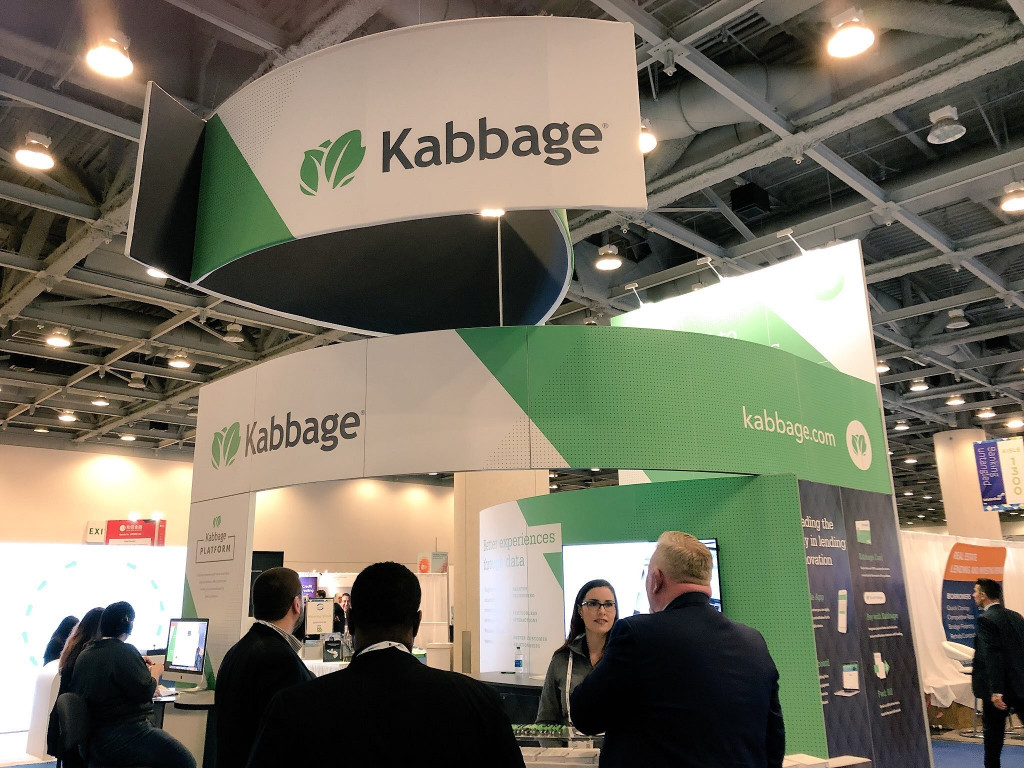 When it comes to lending, the business models of Square and PayPal may be too good to ignore.
When it comes to lending, the business models of Square and PayPal may be too good to ignore.
According to Reuters, Kabbage plans to launch its own payment processing service by year-end. “The monoline businesses have a hard time succeeding long term,” Kabbage co-founder Kathryn Petralia is quoted as saying.
While Square and PayPal started off in payments and added lending, Kabbage sees the value proposition of the reverse play, to start off in lending and add payments.
But another Square and PayPal rival may not. Back in October, deBanked questioned OnDeck CEO Noah Breslow during an interview about this very thing. At the time, Breslow responded that they were not going to sell merchant processing. “Never say never,” he said, “but not in the near future.”
Square and PayPal’s lending businesses differ from other online lenders in that they can solicit their existing payments customer base at virtually no cost. OnDeck, meanwhile, spent $53 million last year alone on sales and marketing to acquire loan customers.
Square’s acquisition of payments customers is not cheap, however. The company spent $253 million in sales and marketing last year. The advantage is in not needing to shell out additional cost to convert them into loan customers.
OnDeck still held the lead over both Kabbage and Square last year in loan originations at $2.1B vs $1.5B and $1.17B respectively. PayPal was not ranked.
Andrew Smith Named Director, FTC’s Bureau of Consumer Protection
May 20, 2018 On Wednesday, Andrew Smith, former partner of the law firm Covington & Burling, was named the Federal Trade Commission’s Director of the Bureau of Consumer Protection.
On Wednesday, Andrew Smith, former partner of the law firm Covington & Burling, was named the Federal Trade Commission’s Director of the Bureau of Consumer Protection.
This is not Smith’s first role in government. From 1997 to 2000, Smith worked as a lawyer for the Securities and Exchange Commission. And from 2001 to 2005, he worked as a lawyer for for the Federal Trade Commission (FTC), where he will now be returning.
Since leaving the FTC, Smith served as a partner at Morrison & Foerster and most recently at Covington & Burling. Smith’s recent appointment garnered criticism from government officials who pointed out that Smith has represented egregious offenders of consumer rights. Of the five FTC commissioners, the two Democratic commissioners voted against his appointment.
But a recent New York Times article, which stressed the fact that Smith has represented violators of consumer rights, also acknowledged that he is “regarded as a hard-working and knowledgeable lawyer even by critics.”
Chairman of the FTC Joe Simons, who appointed Smith, expressed dismay over his colleagues’ rejection of Smith.
“I am disappointed that two of my new colleagues have chosen to turn Mr. Smith’s appointment into a source of unnecessary controversy,” Simon said in an FTC statement. “I am highly confident that Mr. Smith will be an effective leader of the Bureau of Consumer Protection. He is widely respected as one of our country’s best and most experienced consumer protection lawyers.”
Smith has recently represented Facebook, Uber and Equifax, all companies with cases before the FTC. Because of this, it is most likely that Smith will recuse himself from these cases. Critics of Smith’s appointment, including Democratic U.S. Senators Elizabeth Warren, Richard Blumenthal and Brian Schatz believe that this makes him unfit to be director of the bureau. But Simon strong disagrees.
“When a political appointee is recused, the Commission relies even more heavily on these seasoned career professionals to allocate resources and tee up recommendations for the Commissioners, who are the ultimate decision makers,” Simon said in an FTC statement. “When Mr. Smith is recused on a matter, I know [the bureau’s] career managers and staff will ensure that American consumers are still well protected.”
The Broker Fair 2018 Story Through Photos
May 18, 2018Broker Fair 2018 was an amazing day of inspiration, education, and opportunities. We’ve posted some of our photo footage below:

















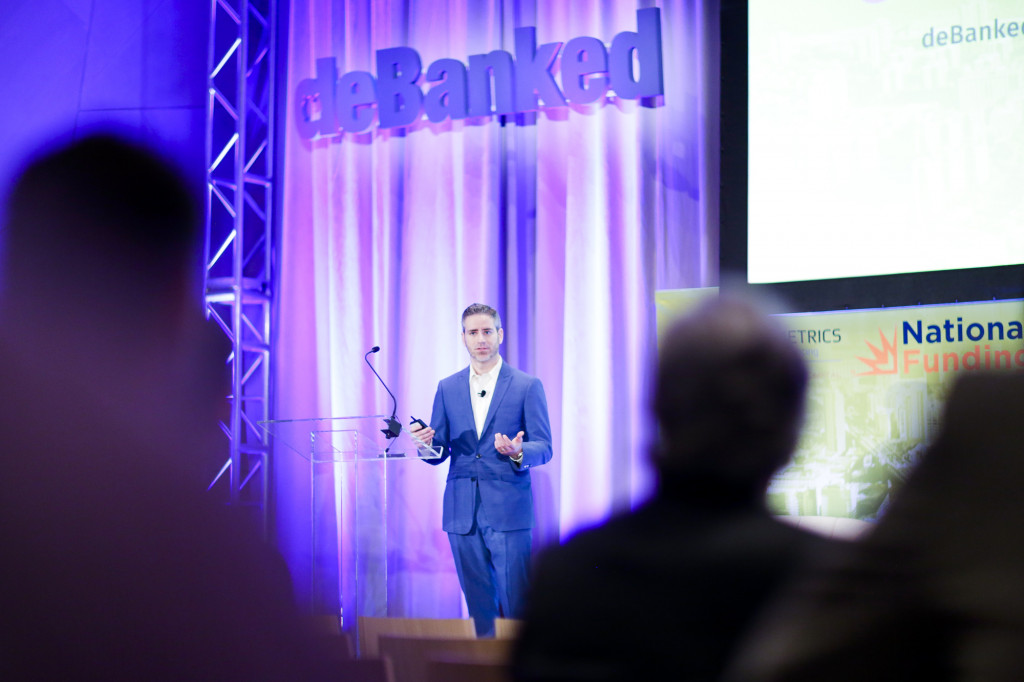




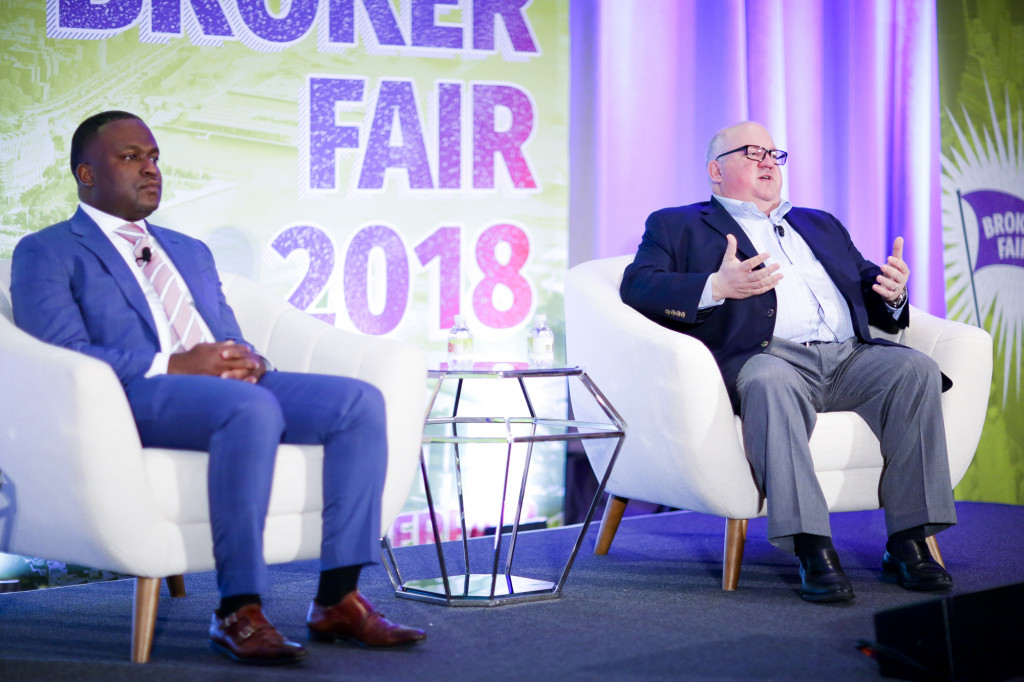


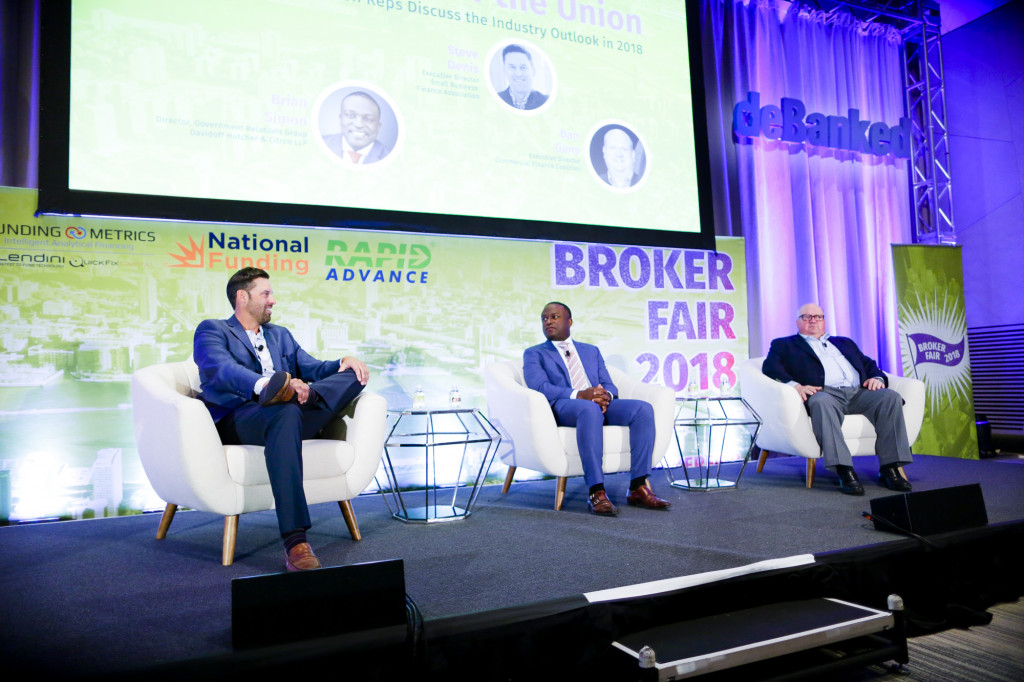


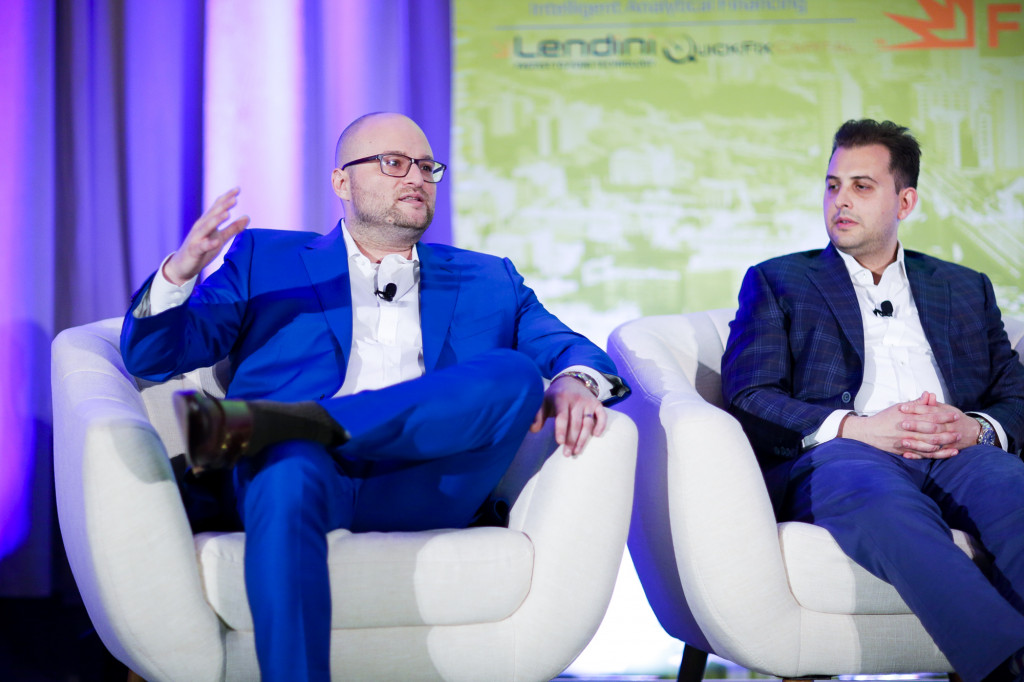











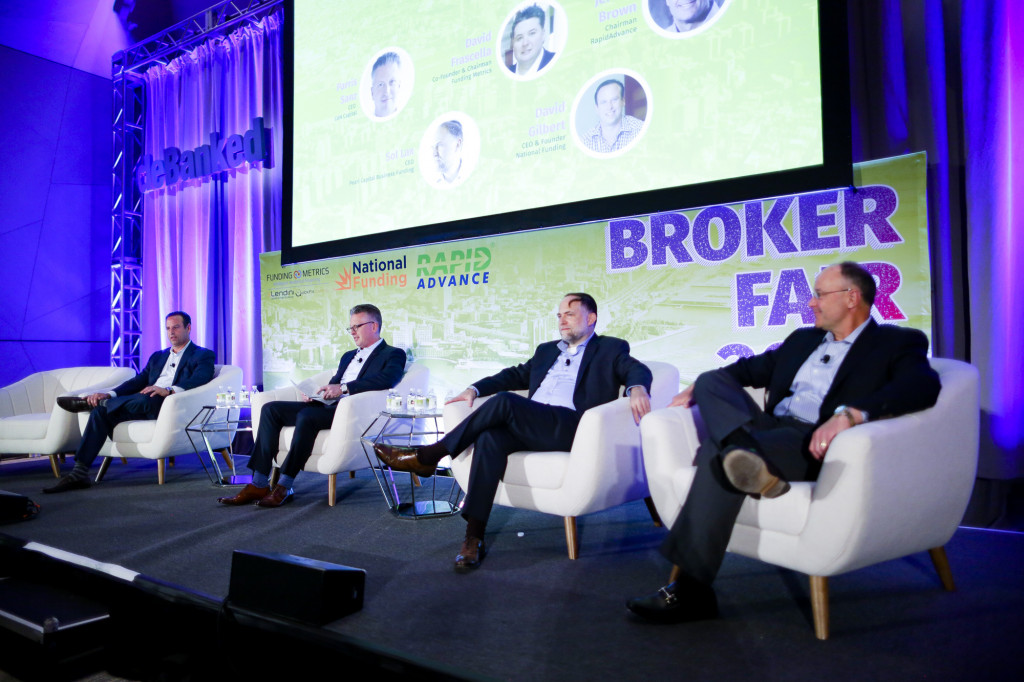
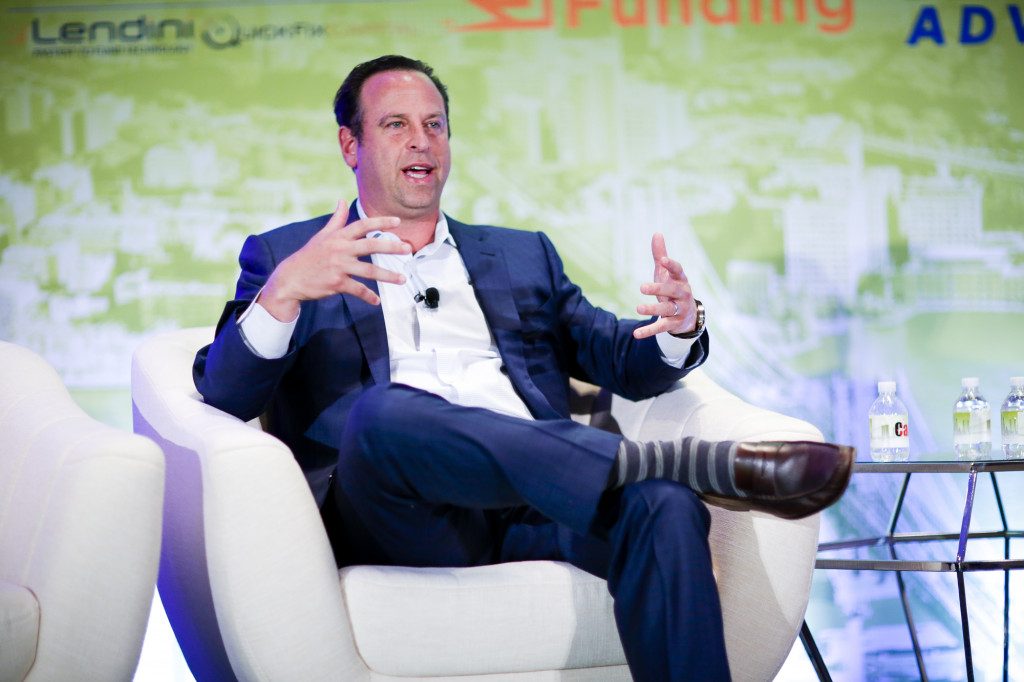





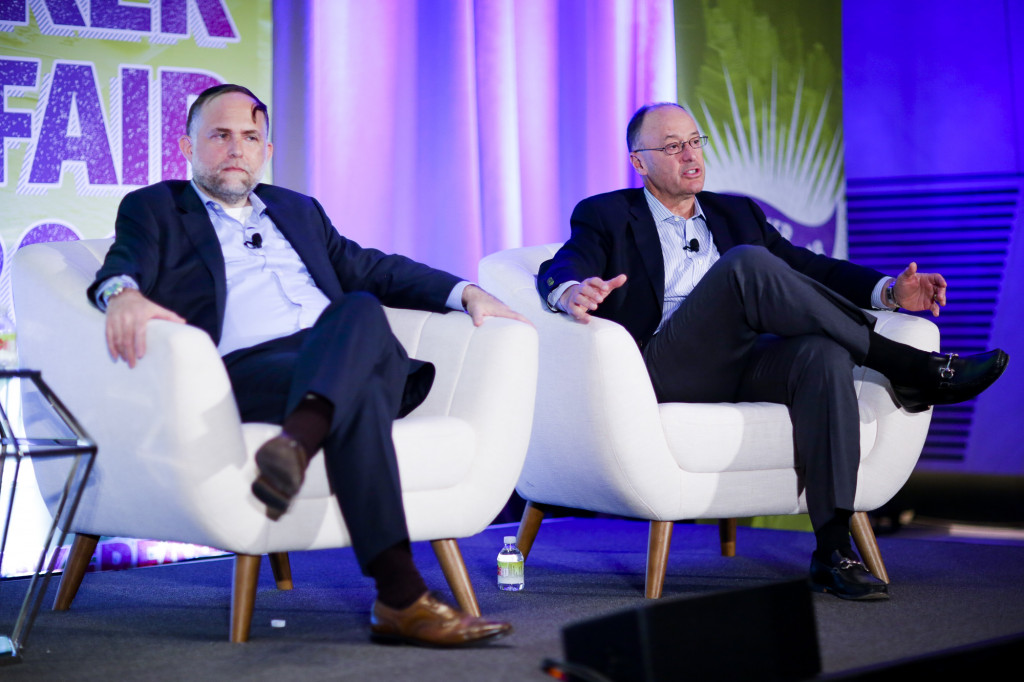


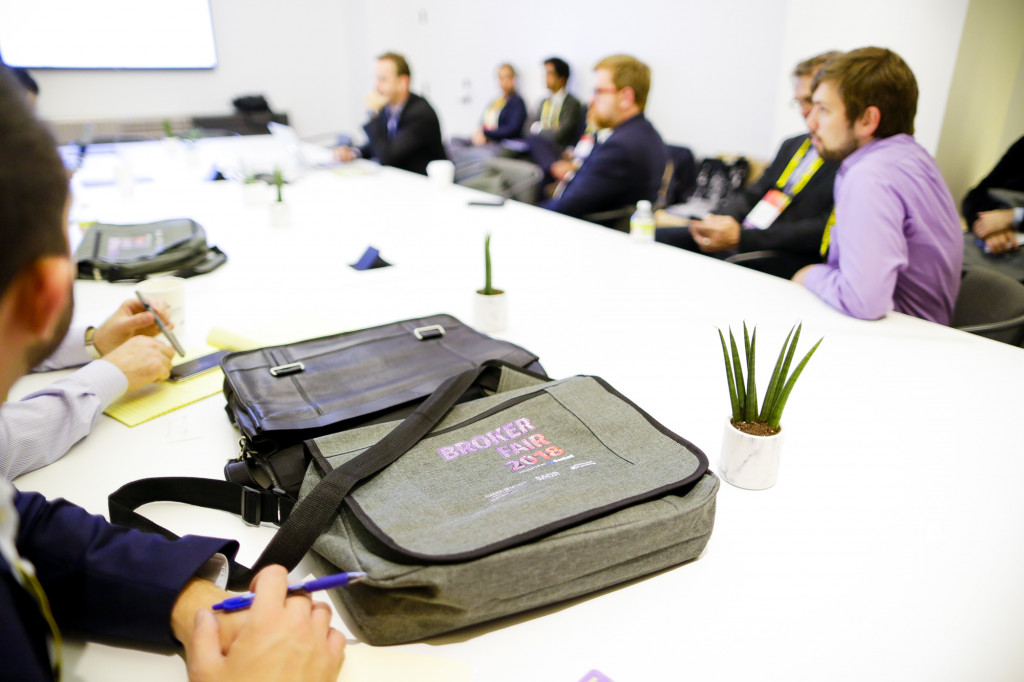


























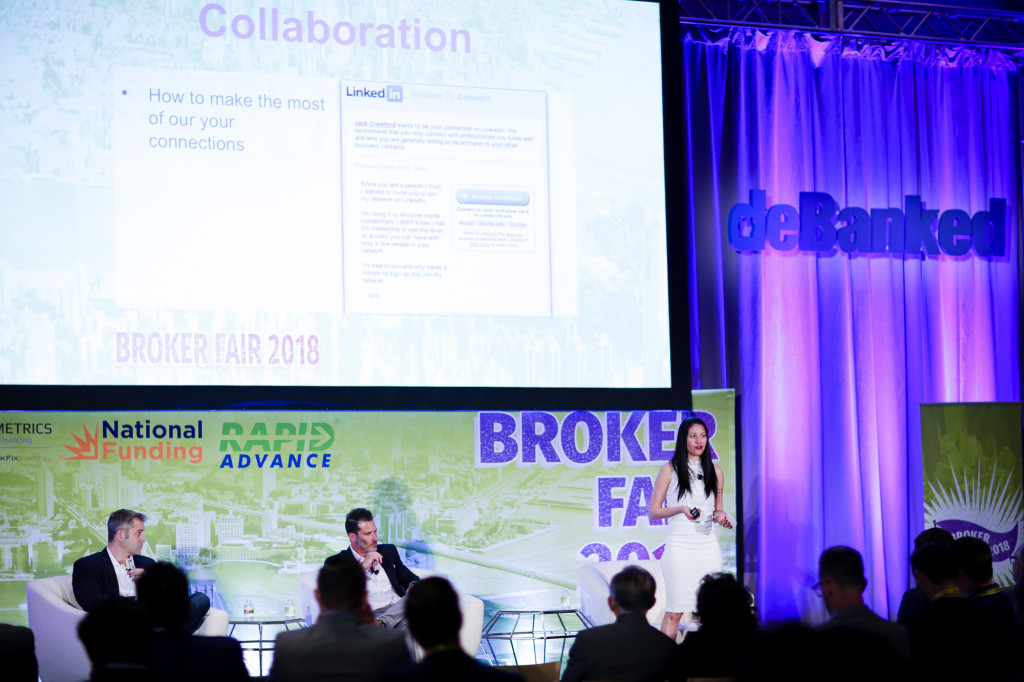


























































JOIN US OCTOBER 4TH IN SAN DIEGO AT THE ANDAZ FOR A SPECIAL HALF-DAY INDUSTRY NETWORKING EVENT
Couldn’t find yourself in any of our photos? We’ll publish the full album in the following weeks.
Fundbox Partners with Eventbrite to Provide Credit to Event Organizers
May 17, 2018 Today Fundbox announced an integration with Eventbrite that will give small business event creators access to capital.
Today Fundbox announced an integration with Eventbrite that will give small business event creators access to capital.
Fundbox Chief Business Officer Sebastian Rymarz told deBanked that event planners for small businesses often have to lay out a lot of money up front – to secure a venue, rent equipment or pay for a performer – before they get paid through ticket sales later.
“There’s this mis-timing between expenses and revenue,” Rymarz said. “There’s an acute need and we’re able to serve [event creators] by providing them with capital to fund those events.”
Funding a company as it anticipates future earnings sounds akin to factoring. But this solution for event creators is not a factoring product. In fact, Rymarz said that Fundbox does not have a factoring product. Instead, this new solution is a new application of what the company calls its Fundbox Line product. This is a line of credit that is paid back weekly over 12 to 24 weeks, regardless of when an invoice is paid, or when tickets are sold.
Fundbox doesn’t purchase invoices. It doesn’t even verify if an invoice exists. Instead, the company relies on its technology. Once an application is submitted, its proprietary system reveals a company’s payment history, its clients, vendors and other information that paints a picture of its creditworthiness. The data system, which Rymarz calls a “ledger graph,” is a web of thousands of small and medium-sized businesses that contains information about the businesses’ relationships to one another.
“Every customer that applies makes our algorithms smarter,” Rymarz said.
He also explained that Fundbox does not employ a single underwriter. Rather, the company invests heavily in developing technology, like its ledger graph. Rymarz said that of the company’s roughly 170 employees, 60 percent of them are either machine learning experts, data scientists or engineers.
The company, co-founded in 2013 by CEO Eyal Shinar, is headquartered in San Francisco and has a research and development team in Tel Aviv.





























